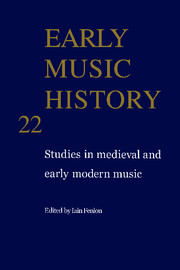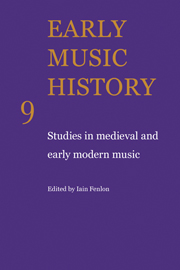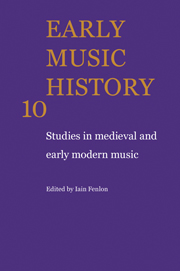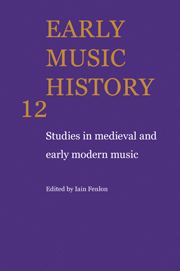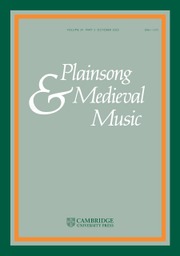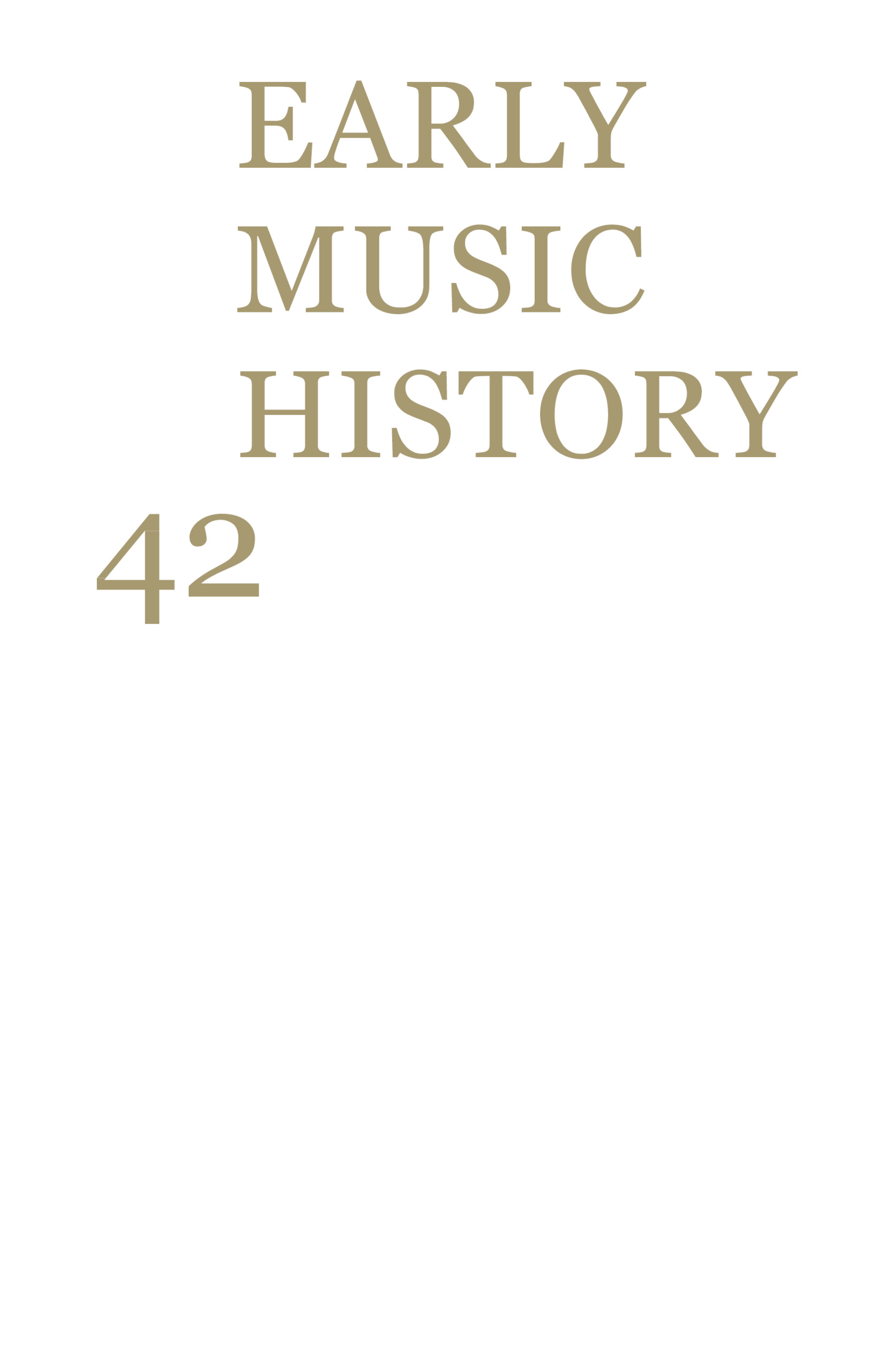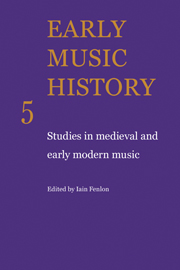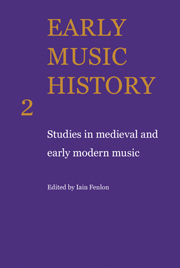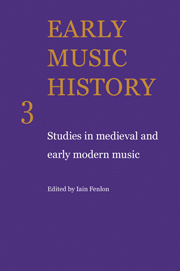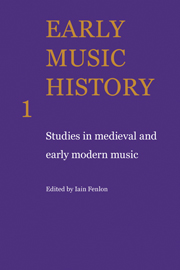Early Music History
Early Music History is devoted to the study of music from the early Middle Ages to the end of the seventeenth century. It demands the highest standards of scholarship from its contributors, all of whom are leading academics in their fields. It gives preference to studies pursuing interdisciplinary approaches and to those developing novel methodological ideas. The scope is exceptionally broad and includes manuscript studies, textual criticism, iconography, studies of the relationship between words and music and the relationship between music and society. Articles in volume twenty-two include: O quelle armonye: dialogue singing in late Renaissance France; Labouring in the midst of wolves: reading a group of Fauvel motets; Watermarks and musicology: the genesis of Johannes Wiser's collection.
Product details
March 2009Paperback
9780521104470
340 pages
229 × 152 × 19 mm
0.5kg
Available
Table of Contents
- 1. O quelle armonye: dialogue singing in late Renaissance France Jeanice Brooks
- 2. Ente: a survey and reassessment of the term in thirteenth- and fourteenth-century music and poetry Ardis Butterfield
- 3. An 'episode in the south?' Ars subtilior and the patronage of French princes Yolanda Plumley
- 4. Labouring in the midst of wolves: reading a group of Fauvel motets Edward H. Roesner
- 5. Watermarks and musicology: the genesis of Johannes Wiser's collection Peter Wright.

